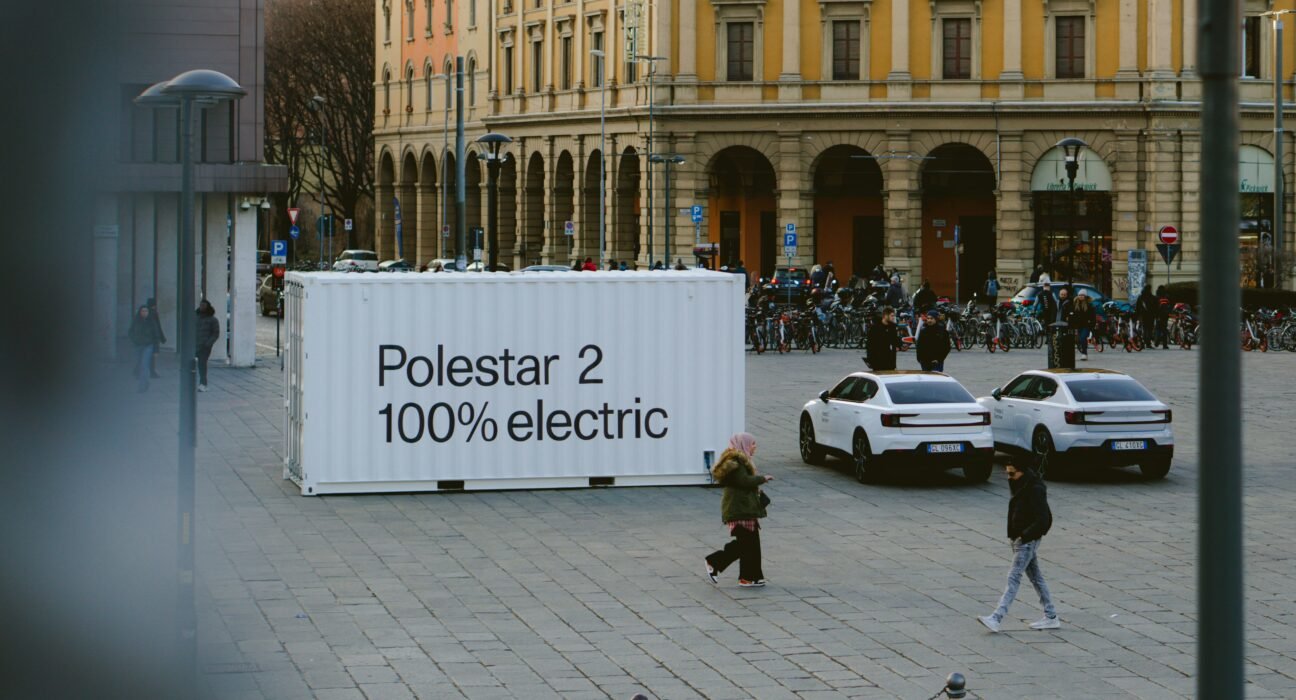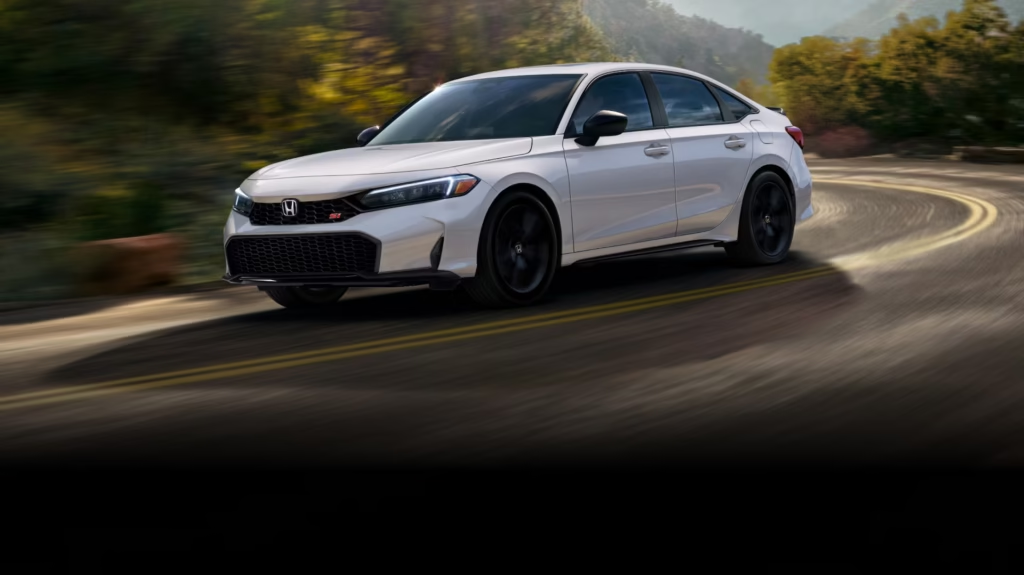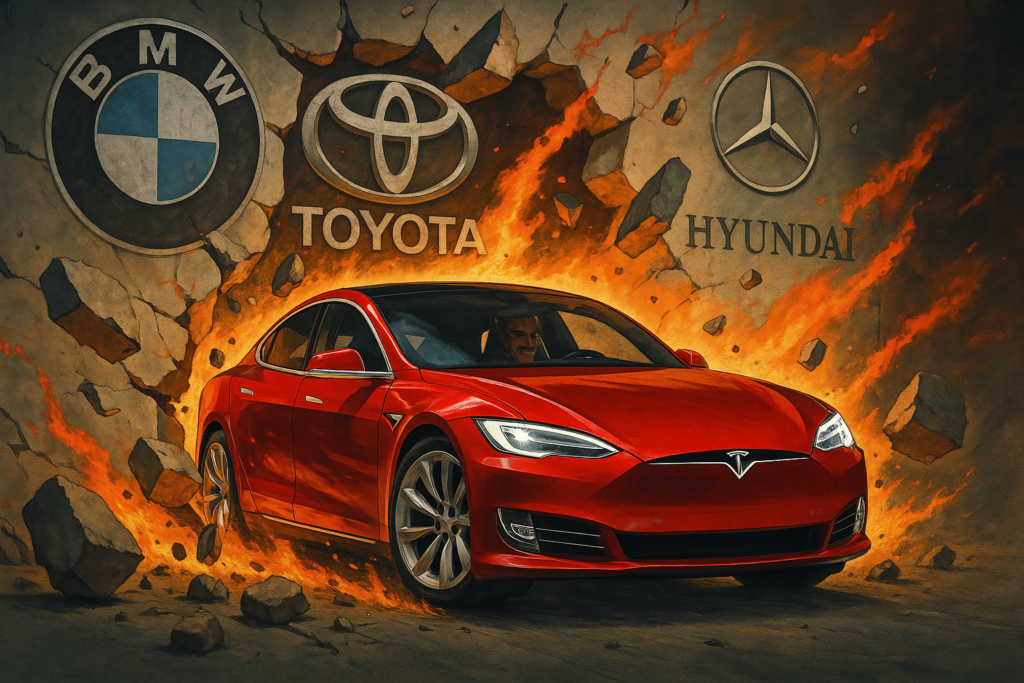Taxing Your Tesla? Why Car Prices Are About to Explode (Thanks, Tariffs!)

Strap in, because if there’s anything that could make your new car a bigger money pit, it’s the dreaded word: tariffs. Yes, we’re talking about the administration’s 2025 tax tantrum that might obliterate EV credits, sending prices skyrocketing like a caffeinated rocket on a hot day.
Ah, the electric vehicle—the modern marvel promising cleaner streets, a smaller carbon footprint, and the sweet satisfaction of gliding silently past gas stations. But just as we’re all getting comfortable with the idea of these eco-friendly machines, it seems the government has decided to throw a wrench (or rather, a sledgehammer) into the works. And that wrench is tariffs, an all-American way to mess up the best-laid plans. In 2025, tariffs are set to hit the automotive industry, affecting everything from spare parts to the very cars themselves. And to add a twist to this impending crisis? EV tax credits—the little bonus that made Teslas and their ilk just that much more attainable—are likely going the way of the dodo.
So let’s break it down, shall we? Let’s talk about how the powers that be have decided to pour a little gasoline on this electric fire. If you were thinking about upgrading to an EV, you might want to reconsider—or at least, start checking out the latest bike models. After all, they haven’t figured out how to tax those… yet.
Tariffs, Tariffs, and More Tariffs: An Expensive Game of Chicken
It’s like this: tariffs are essentially a tax imposed on imports. You know, the stuff we get from other countries because it’s cheaper or more efficient than making it ourselves. But in the spirit of playing economic hardball, governments impose tariffs to protect local industries. The trouble is, when these tariffs hit, it’s rarely the big companies that bear the brunt. Oh no, dear reader, that glorious burden is reserved for—you guessed it—us, the consumers.
With new tariffs targeting the automotive industry, car prices across the board are set to rise. And if you think this will affect only those pricey luxury imports, think again. Those tariffs are like a highly contagious economic flu, spreading from foreign imports to domestically assembled cars, as they rely on a global network of parts and components. So even if your next car is proudly stamped with “Made in the USA,” odds are a good chunk of its parts are imported—and therefore about to get a whole lot pricier.
But let’s zero in on the real kicker: electric vehicles. EVs are particularly vulnerable here because, unlike traditional cars, they rely heavily on batteries and other high-tech components that are often sourced from abroad. So imagine that shiny Tesla or Lucid or Rivian sitting in the dealership, and then imagine it with a price tag that’s bloated by a hefty tariff on its very innards. It’s as if the government took one look at the growing popularity of EVs and said, “Let’s make this harder for everyone, shall we?”
The EV Credit: An Endangered Species
Now, if tariffs weren’t enough of a problem, the government has decided to double down by taking away one of the few perks of going electric: the EV tax credit. For years, this little slice of incentive has been dangling like a carrot in front of consumers, encouraging them to make the switch to greener, cleaner cars. It’s no secret that EVs are still pricier than their fossil-fueled cousins, and the tax credit helped to level the playing field. It was that little “thank you” from Uncle Sam for doing your part to save the planet.
But now, with the 2025 tax changes looming, the days of that credit are likely numbered. And without it? That Model 3 or Mustang Mach-E just went from “maybe I can stretch the budget” to “maybe I need a second mortgage.” It’s as if the government is trying to say, “Thanks for going green, but let’s not get too crazy about it, okay?”
Now, you might be thinking, “Wait, aren’t we supposed to be going all-in on electric cars?” Yes, absolutely. Which brings us to the most baffling part of this whole situation.
The Great Irony: Pushing for EVs, While Making Them Pricier
Here’s the paradox that’s enough to make your head spin: we’re in the middle of a massive push to adopt electric vehicles. Every week, it seems like a new report comes out declaring the end of gasoline, with visions of a green, battery-powered utopia just around the corner. Governments worldwide, including ours, are announcing deadlines to phase out fossil fuel vehicles, pushing automakers to pivot to electric models, and investing billions into charging infrastructure. Yet here we are, simultaneously making EVs more expensive and less attainable for the average consumer.
So which is it? Are we fully on board with EVs, or are we just playing pretend? Because if we’re serious about this transition, why would we make it harder for people to buy these cars? It’s a bit like telling everyone to eat healthy while tripling the price of vegetables. “Eat more greens!” they say, “But we’ll just make it more expensive for you to do so.”
In an ideal world, this would be the moment to double down on those EV credits, making EVs cheaper, more accessible, and as common on the roads as SUVs. But instead, we’re doing the exact opposite, stacking the deck against the very vehicles we’re supposed to be championing. It’s as if someone in Washington didn’t get the memo. Or, worse, they got it and decided it was more fun to crumple it up and toss it in the bin.
The Consumer Fallout: Ready Your Wallets
So what does this mean for the consumer? In a word: pain. If you’re in the market for a new car, especially an EV, prepare to dig deep. With both tariffs and the loss of tax credits, prices are set to rise across the board, with EVs taking the hardest hit. And remember, EVs are supposed to be a long-term investment in lower emissions and less dependency on fossil fuels. But when they’re priced out of reach for the average buyer, that investment starts to look a lot less attractive.
And here’s another twist: by pricing consumers out of EVs, we’re effectively pushing them back toward traditional gasoline cars. If EVs are too expensive, guess what? People will keep buying the gas-guzzlers, because they’re cheaper and, thanks to these policies, suddenly a lot more appealing. So, the net effect of these new tariffs and tax changes might not be to encourage people to go green, but rather to stick with what they know. It’s a classic case of unintended consequences, and the irony here is thick enough to cut with a knife.
The Rationale: Is There One?
Now, you might be wondering what the rationale is behind these decisions. The official story goes something like this: tariffs protect American jobs and industries, and removing the tax credits is a way to balance the budget. But when it comes to protecting jobs, it’s worth questioning how much of that benefit trickles down to the consumer, especially when we’re talking about industries that are global by nature. And as for the budget argument, well, let’s just say it seems like an odd place to start cutting when the stakes involve the future of our planet and our economy.
In reality, it’s likely a mix of politics and priorities that just happen to fall on the wrong side of the EV equation. It’s a short-sighted approach, especially in a world where the long-term benefits of an electric future are increasingly clear. But that’s the world we’re in, where logic often takes a back seat to politics, and the rest of us get to pay the fare.
So, What Now?
Where does this leave us? In a bit of a pickle, frankly. For those who want to go electric, the road just got a whole lot bumpier. Prices are going up, incentives are going down, and it’s hard to shake the feeling that we’re being steered toward a cliff when it comes to affordable, sustainable transportation.
But if there’s one takeaway here, it’s that the EV revolution isn’t quite the straightforward road we thought it would be. It’s a road riddled with obstacles, many of which we seem to be creating ourselves. So, if you’re planning to buy an EV in the coming years, brace yourself for the unexpected. And if you’re not, well, maybe you’ll get to watch this show unfold from the comfort of your good old gasoline-powered chariot. Either way, one thing’s for sure: the future of cars is about to get a lot more expensive. Thanks, tariffs!











How a 25% Tariff on Imported Cars Is Supercharging Tesla's Domination - Revved Up Cars | Expert Car Reviews, News and Ratings
November 13, 2024[…] If you would like to read more about tariffs check out this other article here. […]